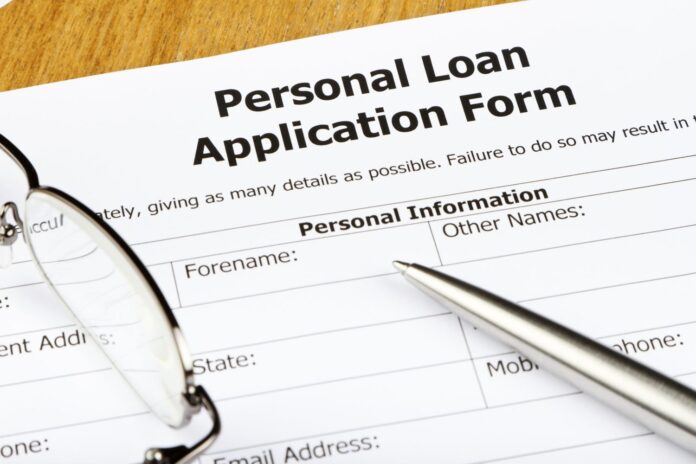
Starting a business often requires capital, and entrepreneurs may face various challenges when it comes to financing their ventures. To make a business successful or to grow it, it is necessary that the business gets an adequate amount of funds. One option is to bootstrap the business, meaning relying on personal savings and revenue generated by the business itself.
However, in some cases, entrepreneurs may find themselves considering a personal loan to inject additional funds into their bootstrapped business. While personal loans can provide quick access to capital, they also come with potential risks and implications that may impact your financial stability.
In this article, we will explore the factors you should weigh when deciding whether to apply for a personal loan for your bootstrapped business.
Understanding Bootstrapping

Before delving into the personal loan aspect, let’s first understand what bootstrapping means in the context of business. Bootstrapping refers to the practice of starting and growing a company with minimal external financial assistance.
Bootstrapped businesses typically rely on personal savings, revenue generated from early customers, and reinvestment of profits to fund their operations and expansion. This approach allows entrepreneurs to retain control and ownership of their company, but it often limits the available capital.
Bootstrapped entrepreneurs adopt a lean approach, minimizing costs and finding creative alternatives. Bootstrapped businesses focus on profitability and cash flow, gradually expanding at a manageable pace. This self-sufficient approach allows entrepreneurs to maintain control over their ventures and develop them at their own pace, while also fostering resourcefulness and adaptability.
Understanding Personal Loans
A personal loan is an unsecured loan offered by financial institutions, such as banks or online lenders, based on an individual’s creditworthiness. Unlike business loans, personal loans are not specifically designed for business purposes. They can be obtained by providing information about personal income, credit history, and other relevant financial details.
Personal loans can be used to cover various expenses, such as purchasing equipment, securing inventory, or marketing efforts. When considering a personal loan for company purposes, it’s crucial to assess your financial situation, including creditworthiness and ability to repay the loan.
Understanding the terms and conditions of the loan, including interest rates, repayment terms, and any associated fees, is essential to make an informed decision. While personal loans offer flexibility and accessibility, it’s important to weigh the risks and benefits and ensure that the loan aligns with your business goals and financial capabilities.
Let us look at the pros and cons of applying for a personal loan for your bootstrapped business.
Pros of Applying for a Personal Loan

Access to Capital
One of the primary advantages of applying for a personal loan is the immediate access to funds it provides. If your bootstrapped business requires capital injection for expansion, purchasing inventory, or investing in marketing campaigns, a personal loan can offer a quick solution.
Flexibility
Personal loans generally come with more flexibility than business loans. You have the freedom to use the funds as you deem necessary for your company without any restrictions imposed by traditional business loan requirements.
No Equity Dilution
Taking a personal loan means you won’t have to give up any equity in your company. Retaining full ownership and control can be particularly important for bootstrapped businesses that value their independence.
Building Credit History
Successfully managing a personal loan can help establish a positive credit history for both you as an individual and your company. This can be beneficial for future financing needs, as it demonstrates your ability to handle debt responsibly.
Cons of Applying for a Personal Loan

Personal Liability
When you apply for a personal loan, you become personally liable for repayment. If your business faces financial challenges and struggles to repay the loan, your personal assets may be at risk. To avoid this situation, the best option would be to form an LLC business structure for your company.
However, setting up an LLC differs from state to state. To know more about forming an LLC in your state, check out this guide on LLC University website.
Limited Loan Amounts
Personal loans typically have lower borrowing limits compared to business loans. If your company requires a substantial amount of capital, a personal loan may not be sufficient to meet your needs.
Higher Interest Rates
Personal loans often come with higher interest rates compared to business loans. Since these loans are unsecured, lenders charge higher rates to compensate for the increased risk. Higher interest rates can significantly impact your business’s profitability and financial health.
Impact on Personal Credit
Applying for a personal loan and carrying a high level of personal debt can negatively impact your personal credit score. This may affect your ability to secure future financings, such as mortgages or car loans, which can be problematic if you’re planning to make personal investments while running your bootstrapped business.
Factors to Consider When Applying for a Personal Loan

Before applying for a personal loan for your bootstrapping business, there are certain factors that are to be considered.
Financial Viability
Evaluate your business’s financial health and assess whether the loan will contribute to its growth and sustainability. Consider your revenue streams, profit margins, and the potential return on investment the loan may generate.
Repayment Plan
Develop a comprehensive repayment plan before taking on a personal loan. Ensure that your business’s cash flow can cover the loan payments without causing undue strain on your finances.
Alternatives
Explore alternative funding options for bootstrapped businesses, such as crowdfunding, angel investors, or small business grants. These avenues may provide the capital you need without assuming personal liability.
Risk Tolerance
Understand your risk tolerance as an entrepreneur. Assess how comfortable you are with assuming personal liability and the potential consequences of loan default.
Final Thoughts
Deciding whether to apply for a personal loan for your bootstrapped business is a crucial choice that requires careful analysis. While personal loans offer quick access to capital and flexibility, they also carry risks such as personal liability and high-interest rates.
Consider your business’s financial viability, and repayment capabilities, and explore alternative funding options before committing to a personal loan. Remember, the ultimate goal is to make an informed decision that aligns with your long-term business objectives and financial well-being.







